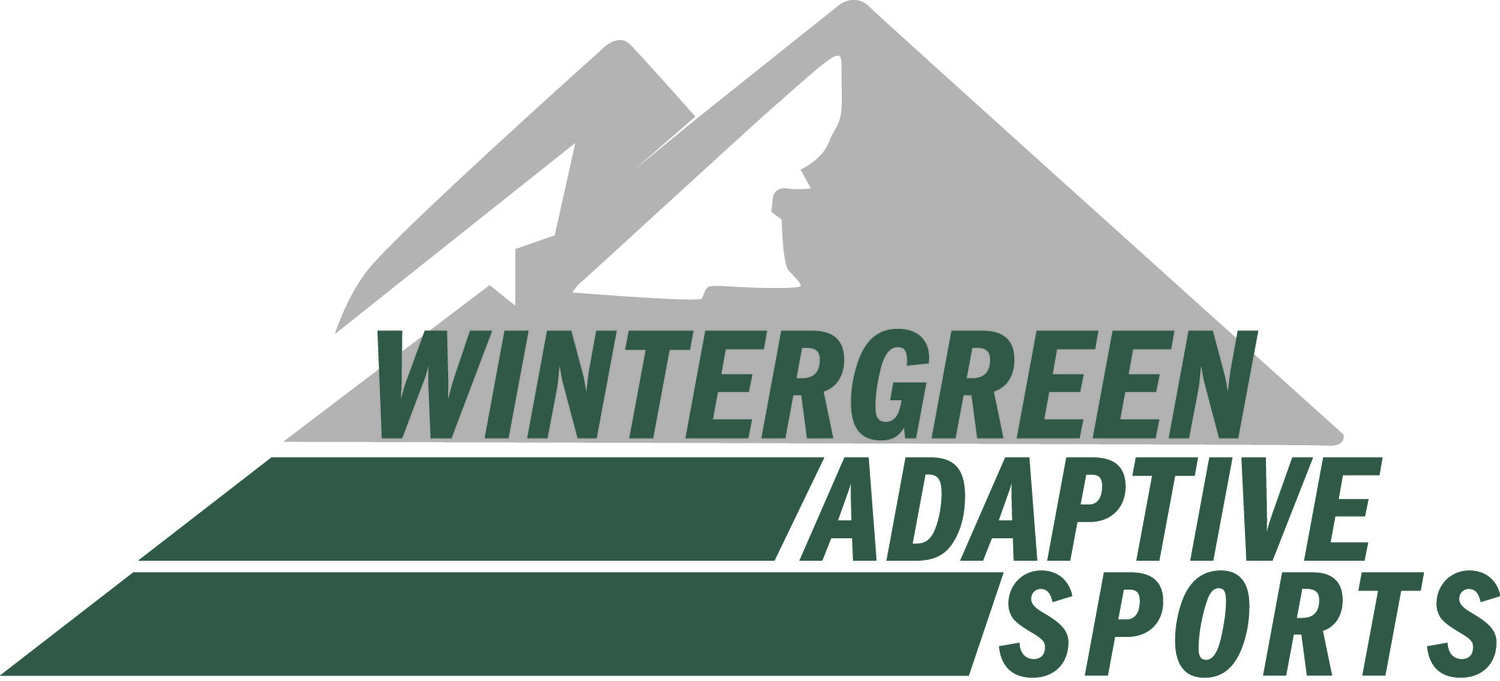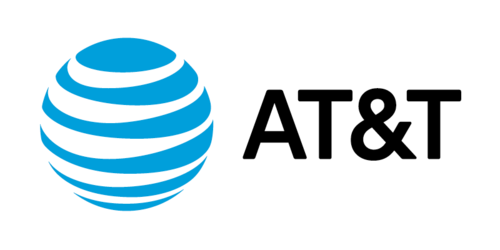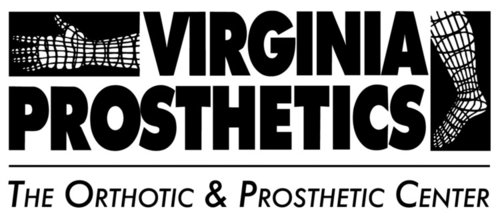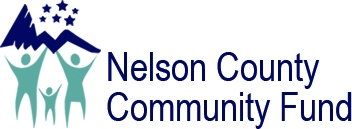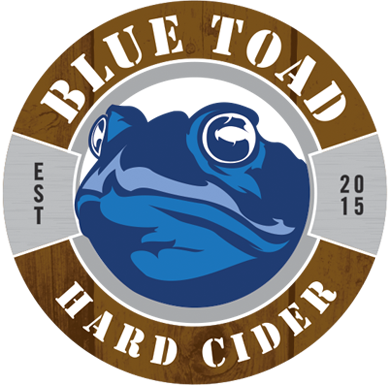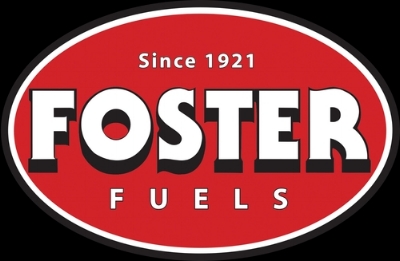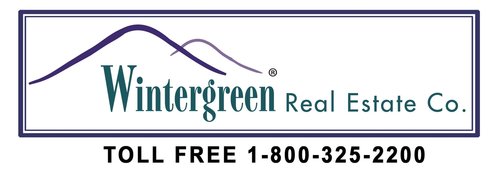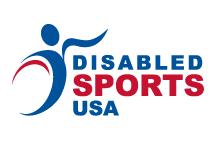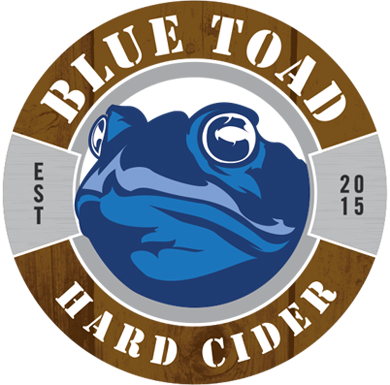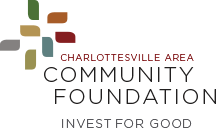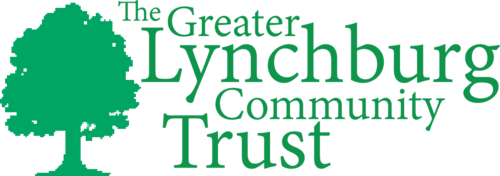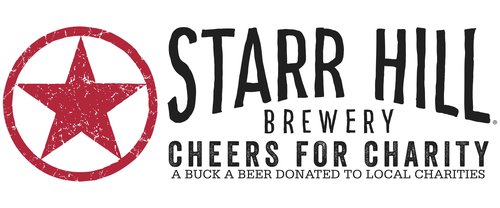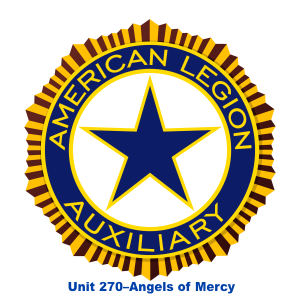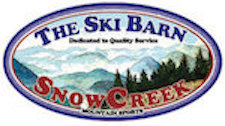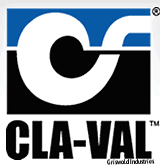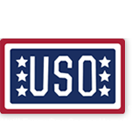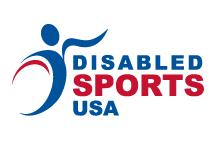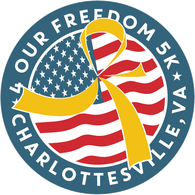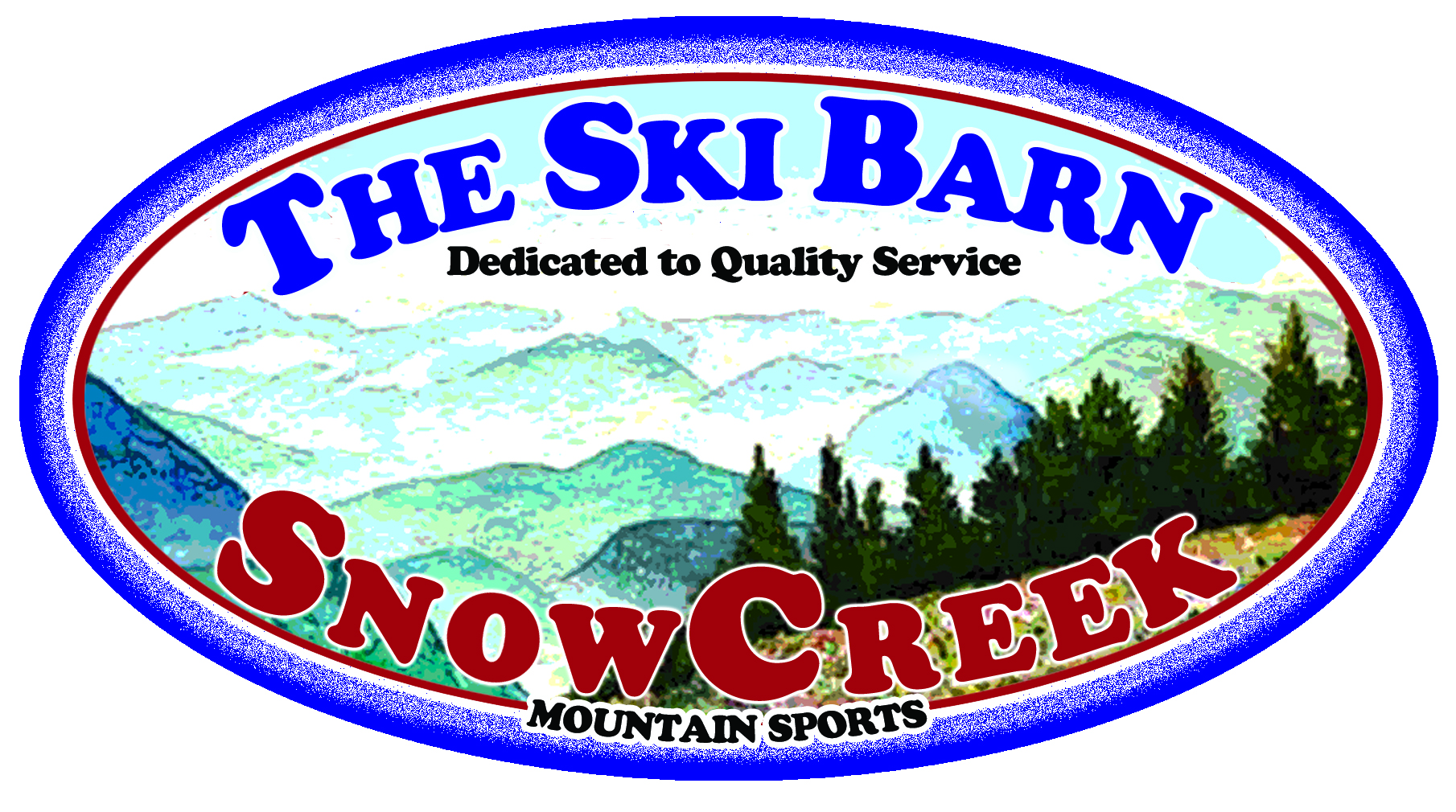WINTERGREEN ADAPTIVE SPORTS
VOLUNTEER HANDBOOK
Wintergreen Adaptive Sports
P.O. Box 4334
Charlottesville, VA 22905
(434) 325-2007
wintergreenadaptivesports.org
Updated November 2021
The contents of this handbook are presented as a matter of information only. W.A.S. reserves the right to modify, revoke, suspend, terminate or change any and all procedures, in whole or in part, with or without notice. The language used in this handbook is not intended to create nor should it be construed as a contract between WAS and any or all of its students or volunteers. WAS is the sole interpreter of all policies stated in the handbook.
TABLE OF CONTENTS
MISSION STATEMENT
WINTERGREEN ADAPTIVE SPORTS HISTORY
THE WAS TEAM
Board of Directors
Executive Director
Schedule Coordinator
Staff Development Director
Mid-Week Program Director
Supervisors
Equipment Manager
Summer Program Administrator/Grant Writer
THE WAS VOLUNTEER TEAM Instructors
Junior Instructors
GENERAL INFORMATION
Location
Contact Information
Hours of Operation
Cost
Fundraising
Wounded Warrior Weekend
Ski Disciplines
Four Track
Three Track
Two Track
Mono Ski
Bi-Ski
Adaptive Snowboarding
VOLUNTEER PARTICIPATION
Criteria Benefits
Subsidy Policy
Mardi Gras Staff Party
Equipment Storage
Building Policy
Commitment and Schedule
Pre-season and ski season Training
Uniform Free Skiing Comp Voucher Policy
Lift line Privileges Parking Insurance
Liability Waivers
Confidentiality
Conduct
Disciplinary Procedures
Helmet Policy
RISK AWARENESS/SAFETY
YOUR RESPONSIBILITY CODE
ACCIDENT REPORTING
MISSION STATEMENT
The mission of Wintergreen Adaptive Sports is to provide adaptive snow sports and adaptive paddling sports instruction to persons with disabilities, of all ages and with all types of disabilities—physical, cognitive, and sensory.
HISTORY
WAS traces its beginnings to 1984 when an adult amputee, Vince Fiore, received his first ski lesson from Michael Zuckerman, a professional instructor untrained in teaching adaptive skiing. Inspired by this experience, Michael Zuckerman attended his first “Learn to Ski” clinic for individuals with disabilities at Jack Frost Ski Area in Pennsylvania in 1984. From 1984 to 1994, over 200 individuals with disabilities received ski instruction at Wintergreen from Michael Zuckerman and a small number of his Wintergreen Ski School associates who undertook specialized training in adaptive snow sports instruction. Equipment was fabricated or acquired to accommodate all of these skiers.
In 1995, the increased demand for adaptive ski instruction and a Wintergreen management decision to open the slopes to sit-down skiers led to the creation of a volunteer instructional force. During this season, our first sit-down lessons were taught on both the bi- and mono-ski. Over forty all-day private lessons were given during this season and seven enthusiastic volunteers were recruited for the 1996-97 season. The first Vince Fiore Memorial Snow-A-Thon, designed to underwrite the costs of the now independent non-profit organization, raised over $4000, and the determination to create a bigger program was born. During the summer of 1996, WAS incorporated in the state of Virginia and achieved non-profit 501(c) 3 status with its chapter membership in Disabled Sports/USA, the largest sports and recreation organization for individuals with disabilities in the United States.
The 1996 season saw the addition of an innovation that was unique to Wintergreen Adaptive Sports and remains one of the very few programs of its kind in the United States. As a public high school teacher, Michael Zuckerman saw the potential of enlisting some of his high school students as volunteers in the adaptive ski program. From that season to this day, dozens of teenaged students have been trained and utilized each season as Wintergreen Adaptive Sports junior instructors. These students, and the skiers they work with, have gained tremendously through their volunteerism and their devotion to the work of Wintergreen Adaptive Sports. This marriage between our adaptive snow sport program and local high school students has become a mainstay of the WAS experience.
WAS is proud of its steady, controlled growth. By 1999, with our new building started, we taught 150 all-day private lessons with 38 volunteer instructors (10 of them high school students). By 2003, over 700 individuals with all kinds of physical, cognitive, or emotional disability were introduced to the sport of alpine skiing. In 2007, we doubled the WAS building size. As of last season, over 100 volunteer instructors have received PSIA adaptive certification. In 2010, we gave over 600 lessons, operating seven days a week from mid-December to mid-March.
In 2005, WAS conducted the first Wounded Warrior Snow Sports Weekend. By 2009, the fifth annual event hosted over 25 injured military personnel with an equal number of spouses and children. In 2007, WAS began an adaptive kayaking and canoeing program. In two years it had expanded to over 125 lessons (including a Wounded Warrior Kayaking Weekend), 30 volunteer instructors and an extensive array of kayaks and canoes. In 2008, WAS installed a boat storage building at Wintergreen’s Lake Monacan and purchased a trailer for hauling up to 20 boats to river locations. In 2009, WAS created its own boat launch area at Lake Monacan and built a wheelchair ramp for ease of boat put-in on the lake. Also, during the summer of 2009, WAS initiated a Wounded Warrior Golf Event at Kingsmill Resort’s Plantation Golf Course in July, to raise funds for the organization’s wounded warrior programs, but also as an event during which wounded warrior golfers could participate in both the tournament and a specialized adaptive golf clinic.
THE WAS TEAM
BOARD OF DIRECTORS
As a non-profit, 501(c) 3 corporation, WAS is governed by a Board of Directors.
EXECUTIVE DIRECTOR
The Executive Director performs WAS’s overall administration. The Executive Director of the program is responsible for the leadership and management of WAS. This director is responsible for developing and managing program goals and the annual budget. The Executive Director also oversees the recruiting and evaluating of students based on eligibility guidelines. The Executive Director is responsible for the supervision and evaluation of the all of the WAS staff positions.
WINTER PROGRAM DIRECTOR
The Winter Program Director is responsible for overseeing the program on snow activities and special events during the ski and snowboard season. This includes the day to day management of WAS volunteers, staff and students. The Winter Program Director must also manage the program’s relationship with Wintergreen Resort and the image of the program with the greater community.
SCHEDULING COORDINATOR/PROGRAM ADMINISTRATOR
The Scheduling Coordinator/ Program Administrator, is responsible for student and volunteer scheduling. She is also responsible for organization and upkeep of student and volunteer paperwork and records. This person maintains the student lesson schedule and does much of the lesson pairing, and also edits and produces the newsletter and some portions of grant reports.
STAFF DEVELOPMENT DIRECTOR
The staff development director is responsible for overall training, supervision and evaluation of volunteer instructors. His responsibilities include planning and conducting of the dry-land and on-snow training clinics, on and off-snow supervision of adult and junior instructors, exam preparation, and supervision of instructor and student record-keeping. In conjunction with the executive director, he also administers the budget for staff development and coordinates PSIA and AASI clinics and exams.
SUPERVISORS
Reporting to the Winter Program Director, WAS supervisors oversee the operation of all snow sports lessons, assisting the director each day with lesson pairings. Each day of operation one of these supervisors will be present, picking up student lift tickets and rental equipment, taking out clinics, running the staff meeting, greeting students and introducing students to instructors, overseeing launching of students, conducting on-hill supervision, overseeing the daily paperwork (clinic attendance, student progress reports), cleaning up and closing of building.
EQUIPMENT MANAGER The Equipment/Building manager is responsible for the maintenance and upkeep of adaptive ski equipment and attends every weekend to assist in equipment fitting, distribution of equipment, daily repairs and upkeep of the equipment area.
THE WAS VOLUNTEER TEAM
INSTRUCTORS
Instructors report to a Supervisor and sign in at 8:30 for weekend clinics or by no later than 9:30 am for daily staff meetings. Assignments are posted on a board in the staff changing room. Be sure to review the assigned student’s file and ask questions of the supervisors or the student’s previous instructors to get familiar with the student and the equipment required.
After a lesson is complete, lead instructors should see that student’s equipment is returned to the rental shop or equipment storage area. Lead instructors MUST completely fill out a progress report on their student and return the student’s file to the progress report box hanging in the doorway to the instructor’s room. Progress reports are a vital part of our student’s progression and the instructor’s primary means for learning about their student for a given day. Incomplete progress reports are what we fondly refer to as a “slush fund” violation! There is a hefty $2 penalty for not filling out the report with an additional $1 fine for failing to put the file in the progress report box. These penalties subsidize a worthy cause: the refreshments at our annual Mardi Gras Celebration.
JUNIOR INSTRUCTORS
Volunteer junior instructors arrive and sign in at 8:30 to participate in a clinic, or no later than 9:00 am. Morning assignments will be given upon arrival and include: filling the water cooler, shoveling snow, keeping the hut tidy, picking up rental equipment and other duties. Junior instructors attend the staff meetings and assist the lead instructor of the assigned lesson as needed. After the lessons are done for the day, they are responsible for returning equipment and picking up the litter and debris left in the WAS building and grounds.
GENERAL INFORMATION
LOCATION
WAS operates out of a slope-side building, at the end of Lot 2, located at 13 Grassy Ridge Drive at Wintergreen Resort in Nelson County, Virginia. All lessons begin at this building.
CONTACT INFO
(434) 325-2007
info@skiwas.org
wintergreenadaptivesports.org
The answering machine is always on. Please leave a message.
HOURS OF OPERATION
WAS operates from 8:00 – 4:00 on weekends, and 9:30-4:00 Monday through Friday from mid-December through mid-March. WAS is closed on Christmas Day and New Year’s Day.
WAS provides adaptive snow sports instruction from 10 a.m. to 4 p.m. Half-day lessons (10-12:30 or 1:30-4:00 p.m.) are also available. All lessons are scheduled by advance reservation only; booking at least 1-2 weeks in advance is highly recommended. Students are scheduled on a space available basis.
COST
The cost for adaptive ski instruction is $100 per day, $60 for ½ day, and includes: lift ticket, use of regular and adaptive ski equipment and 2.5 or 5 hours of private ski instruction. Thanks to the generosity of W.A.S. supporters, we also provide no-fee scholarships to students of limited means. We have no strict means test, but endeavor to make W.A.S. lessons accessible and affordable to all.
Students or their parents must provide transportation, lunch and off-hill supervision. Wintergreen provides daily lift tickets and regular equipment for students. Volunteers also receive a complimentary one-day lift ticket from Wintergreen for two days of volunteer service to WAS.
FUNDRAISING
WAS is affordable to students with disabilities thanks to the contributions of individuals, foundations, and corporations and from the proceeds of fundraising events held through the year. The funds raised go towards the purchase of adaptive and standard ski equipment, staff training, and operating expenses.
WOUNDED WARRIOR WEEKEND
In 2005, WAS, DS/USA and Wintergreen Resort hosted the 1st Annual Wounded Warriors Weekend. Seven amputee soldiers and marines from the Iraq war, along with support staff, were given a weekend of adaptive instruction, lift tickets and equipment, as well as meal vouchers, free lodging and an honorary banquet.
The traditional Saturday night banquet honoring the wounded warrior students will be open to the public, with advance reservations. A large number of volunteers are needed to make this event happen. This is a mandatory date on the commitment schedule as there is a larger than usual student schedule. Volunteers are needed to promote the event, decorate the building, assist with rental equipment, assist with the banquet and provide lodging.
SKI DISCIPLINES
Two Track
Individuals who are blind or visually impaired, deaf or hearing impaired, have mild motor deficits or upper extremity deficits are good candidates for two tracking. Also included in this category are people with learning and developmental disabilities, emotional disturbances, autism, and with other cognitive deficits.
Two trackers use two skis and two boots and may use a ski bra attached to the ski tips. Ski bras assist with lateral control and help maintain a consistent ski position.
Three Track
These skiers have one sound leg and two sound arms. They are generally individuals with amputations, post-polio or hemiplegia. Three trackers use a full size ski and outriggers giving them three points of contact on the snow.
Four Track
Four tracking is for individuals with disabilities of the lower extremities. This may include individuals with cerebral palsy, spina bifida, spinal cord injuries, multiple sclerosis or those who have lower extremity amputations. Almost anyone who walks with canes or crutches may ski four track using outriggers.
Outriggers are adapted forearm crutches with ski tips mounted on the bottom. They aid the skier in stability and turning. Two skis and two outriggers provide the four-tracker with four points of contact on the snow.
Mono-Ski
The mono-ski was developed for individuals who ski in a sitting position. A mono-skier should have good upper body strength, balance and trunk mobility. An individual with double lower extremity amputations, spina bifida, or with a spinal cord injury of T-4 or below is a good candidate for the mono-ski. The skier sits in a molded shell mounted above a single ski. Two outriggers are used for balance and turning. The design of the mono-ski allows the skier to use the ski dynamically. The mono-ski is designed to be self-loading onto the chairlift. This provides the opportunity for an independent ski experience.
Bi-Ski
The bi-ski was developed for individuals who ski in a sitting position. This may be those with multiple sclerosis, muscular dystrophy, cerebral palsy, spina bifida or spinal cord injuries. A bi-skier sits in a molded fiberglass shell above two specially designed skis. The two skis give a wider base and better balance than a mono-ski. The bi-ski can be skied independently with the use of two outriggers for balance and turning. For beginner skiers and those needing more assistance, fixed outriggers and a handlebar can be utilized. The bi-ski must be tethered by a ski instructor whenever the fixed outriggers are used.
Adaptive Snowboarding
Adaptive snowboarding is relatively new in the adaptive snow sports world. Adaptive snowboarding can be broken into categories similar to stand up skiing. These include single track for students that need minimal or no adaptive equipment, and two/three track for students requiring the use of handheld outriggers or other specialized equipment.
VOLUNTEER PARTICIPATION
CRITERIA
Volunteers
Take the SnoFit physical fitness test (when required and made available for all Resort instructional staff)
Complete 2 days of pre-season on-snow training.
New Instructors must attend Dryland Training (prior to on-snow training days)
Fill out a Move United/DSUSA liability waiver (Junior Instructor must have it signed by a parent)
Make a schedule of volunteer days and turn it in by November 30th.
Sign up for a minimum of 9 full days of volunteer instructor service per season*
Attend 4 training clinics during the season
Provide your own black uniform pants to wear with the WAS jacket or WAS fleece
Skiers must supply a binding release check (available at Ski Barn or Freestyle)
*exceptions are granted in limited cases based on student/work/travel schedule constraints
Vounteers are also encouraged to join us at special event opportunities which include: UVA football game fundraisers (fall; merchandise stand); UVA baseball game fundraisers (late spring; concession or merchandise stand); UVA Concerts (various dates, must be 18); booths at Charlottesville’s Fridays After Five (summer/early fall); a summertime 5K Race; the WAS Wounded Warriors Golf Tournament (Williamsburg, June or July); booths at the Richmond-area State Fair (in conjunction with our Richmond Ski Club supporters; our annual Mardi Gras (first Saturday in March), and a variety of other smaller special events and a small number of rotating (often every-other-year) events, such as The Lockn’ Festival (August) or the Starr Hill Oktoberfest (October).
Signing up for these will put you on a list to be called based on need. Geographic proximity and other limiting factors will always be considered.
BENEFITS
All volunteers receive credit for a complimentary 4 hour lift or tubing voucher for each day of volunteer service. This ticket is transferable and can be used seven days a week, any session. WAS provides ongoing training in skiing/snowboarding and teaching skills. We also offer opportunities and subsidies for professional certification.
Volunteers in their third year or more and/or PSIA certified receive the above plus a seasonal Wintergreen Associate ID (valid 11/30-3/30) issued in the Wintergreen Resort Human Resources department. Presentation of this ID entitles volunteers to free use of Wintergreen recreational facilities on weekday, non-peak, non-holiday times. This includes skiing after 3pm on Sunday through Friday (see FREE SKIING policy), rental equipment, admission to the golf greens, Wintergarden Spa and fitness center. It also includes modest discounts on food and merchandise at several Wintergreen Resort facilities.
SUBSIDY POLICY
In house adaptive clinic: Paid by WAS that season
In house adaptive exams Level I, II Skiing and Level I Snow Board at Wintergreen: Instructor fills out application and pays in full, WAS will reimburse 100 percent of the event application cost at the end of the season, pass or fail.
Any adaptive exam at other Ski Area: Instructor fills out application and pays in full, WAS will reimburse a minimum of 50 percent* of the event application cost at the end of the season, pass or fail. Gas and lodging subsidies are also available.
Any other PSIA/AASI exam: Instructor fills out application and pays in full, WAS will reimburse a 100 percent of the event application cost at the end of the season pass or fail.
Update clinics: Instructor fills out application and pays in full all expenses, WAS will reimburse instructor the following season a 100 percent of the event fees, if instructor returns and completes his/her 9 day of volunteer commitment.
*A subsidy greater than 50 percent (often 100%) for this training opportunity is determined by year-by-year grant and special fundraising opportunities.
Subject also to grant and fundraising opportunities, WAS is often able to offer a generous travel expense stipend for events such as Challenge Alaska, Pro-Jam, and Ski Spectacular.
WAS has a core commitment to staff development and will endeavor to pay for as much of the professional training and certification costs its volunteer instructors might incur. Reimbursements are paid as outlined above, and allotted after the cost has been incurred and distributed no later than the end of the snow sports season. If you are expecting reimbursement for the current or previous season, event costs must be turned in before March 14. If you don’t submit expenses for reimbursement by then, we’ll assume you’re absorbing the cost of that event. Any comments or questions can be directed to Andrew Crane at skivolunteers@skiwas.org
WAS Annual Mardi Gras Celebration:
First Saturday in March
This special day, always the first Saturday in March, is marked for our end-of-year party and as a day of recognition and thanks for our hardworking volunteers. We encourage as many students as possible to join us for this fun day on the hill. Our famous events, the Costumed Parade and the Synchro Ski Races will highlight the day. Lunch is the traditional WAS gumbo (a choice of seafood or chicken and sausage), and a rotating vegetarian stew event, open to all. After lessons end for the day, we will have our staff party complete with beverages and a dinner buffet, usually held also at the Hut and in an adjoining tent. A large number of volunteers are needed to make this event happen. This is one of the dates on the instructor commitment schedule that we encourage all to select as we anticipate a much larger than usual student schedule.
11:00 Rex Parade
12:00 Lunch at the hut, Crowning of the Royal Court, student awards
3:00 Costumed synchronized skiing contest
4:30 Awards Ceremony for the staff and Cajun Dinner Buffet
EQUIPMENT STORAGE
We have room for instructors to stow their gear overnight or all season long in a storage space under the building with ski and snowboard racks. Once you have turned in your schedule, a rack space will be allotted to you. You are responsible for stowing your gear at the end of the day. Equipment left upstairs will be tossed (without gentleness!) into the storage area. Limited equipment spaces in the hut can be purchased for the season for $35. Note that while your equipment is warm and dry, you cannot get it when the hut is closed or locked during midweek lessons.
BUILDING POLICY
Days: Instructors only have access to the building (and equipment storage) when there is an employee present. Plan ahead and prepare for possible weekday and evening outings by taking your equipment so that it won’t be locked up! Call in advance of arriving to ask if someone will be present or if they can set skis/boots/comp tickets outside. If weekday lessons are cancelled or not scheduled, there might not be an employee present during regular business hours. Call the WAS building at 434-325-2007 to check. If no one answers, do leave a message, just in case the staff member is away from the building temporarily. Nights: Night time access to the hut will only be allowed when an employee or board member is present. That person is responsible for what goes on in the hut during that time. Golf Cart: To be used only with a supervisor’s permission and only for official WAS business.
Comittment and Schedule
The minimum commitment for all volunteer instructors is two days of on-snow training and nine days of instruction during the season. Of your nine days, we encourage all to select one over the Wounded Warriors Weekend (Saturday or Sunday) and the Mardi Gras Saturday. Active membership on a Wounded Warriors or Mardi Gras committee may count as one of the nine days or as a special event service day. In addition to the 2 days of training and 9 days of volunteer instructing volunteers are encouraged to sign up for 1 day of volunteer special event service as well (some of which are noted, above).
As noted above, signing up for these will put you on a list to be called based on need specific to each event. Geographic proximity and other limiting factors will always be considered.
Instructors are encouraged to attend as many In-house training clinics as they can, from 8:00 or 8:30-9:00am, usually offered on weekends. Your season schedules are due by November 30!
We expect you to adhere to the schedule you submit and be available for the entire day that you are committed. If you cancel a date, you must schedule a replacement date at that time. In the event that there are more instructors on the schedule than needed, or the slopes are closed due to inclement weather, you may be given the option of not coming in. Such days will still count towards your nine-day commitment, but a comp ticket will not be earned.
Tethering:
In order to tether a bi-ski lesson, additional training and evaluation is required.
· Evaluation includes demonstration of adequate tethering, lead loading and unloading skills on novice terrain for level I and second year instructors, intermediate terrain for level II, or advanced terrain for level III.
· Until a volunteer is checked off they will not tether a student, but may assist in sit-down lessons.
· Once checked off, they will tether only on terrain appropriate to level of check-off certification.
· When a student wishes to advance in terrain, lead instructors send junior/or second to that slope to scout terrain before taking student to next level terrain.
· Volunteers are encouraged to use the first season to practice tethering skills in clinic settings. Tethering clinics will be offered on a regular basis. Commensurate with experience, clinic work, and ability, some instructors may get checked off in the first season.
APPEARANCE/UNIFORM
A uniform jacket is signed out each scheduled volunteer day and returned at the end of each day. Jackets and nametags must be worn at all times. Black pants are required and are provided by the volunteer. UNIFORM JACKETS ARE TO BE WORN ONLY ON SCHEDULED VOLUNTEER DAYS or at PSIA sanctioned events. Smoking or drinking in uniform is prohibited. Fleece WAS vests or jackets are available for purchase and may be used as a uniform on warm days. Helmets must be worn at all times while on the snow.
Volunteers should be well groomed, neat and clean and provide their own clothing as needed (i.e. gloves, goggles, neck warmers, hats). Dressing warmly, in layers, is suggested.
Glasses or goggles with mirrored or dark lenses should be removed when talking with a student. Eye contact is important when building trust.
Free Skiing
DAYS OFF/Comp Passes:
First and Second year volunteers wishing to ski on days off should go to the Scheduling Coordinator or Winter Program Director in order to receive an earned comp lift ticket voucher for the day or evening. The Scheduling Coordinator/Winter Director keeps the records of lift tickets earned and used. The lift ticket vouchers can be used for tubing as well and are to be exchanged at the ticket window for a lift or tubing ticket.
COMP VOUCHER POLICY
You may request vouchers in advance (max. 4 per request). Vouchers will not be replaced if lost, nor are they returnable if unused.
Earned comp credits are valid for the current season only, with one exception: those earned after February 15.
Credits earned from February 15 through to the end of the season will be carried over only if you return the following season as a volunteer instructor.
Third + year volunteers may ski on days off Sunday PM through Friday PM, using the Wintergreen Associate ID as a lift ticket. It is valid for the same periods the Wintergreen Season Pass.
From Saturday AM through Sunday at 12:30 and on holidays (Christmas week, Presidents Day Monday, MLK Monday), everyone must redeem a comp pass to ski. Instructors wishing to ski after their work session will be issued a complimentary night lift ticket. The policy is further defined below as per the agreement between WAS and Wintergreen Resort:
WAS Complimentary lift ticket program
Wintergreen Resort extends the privilege of complimentary tickets to WAS volunteers in good standing of the Wintergreen Adaptive Sports. “In good standing” means each volunteer has: completed pre-season training, obtained binding release, completed all paperwork, submitted a schedule with a minimum of 9 volunteer days, and is not on probation. Please keep in mind that these benefits are a privilege and not a right, and abuse of the comp ticket policy could lead to the revocation of the privilege for the offending individual.
New members of WAS conducting training to be considered for a position as a volunteer instructor within WAS are not eligible to earn complimentary tickets.
Less than 3 years of service: Volunteer WAS members in good standing with up to 3 years of service earn one 4 hour comp ticket voucher for each full teaching day that they work (or one full-day pass for each two days of instruction). Comp vouchers can be redeemed for skiing or tubing. Comp vouchers earned from February 15 through to the end of the season will transfer to the next year (provided the instructor returns the next season). In addition, credit will be given for days volunteered for WAS off snow related activities such as non-instructional duties related to Wounded Warriors or Mardi Gras weekends.
Over 3 years of Service and/or PSIA adaptive certified: Volunteer WAS members in good standing are eligible for a seasonal Wintergreen Associate ID, as well as, the ability to earn transferable complimentary lift tickets as stated above. Wintergreen Associate ID recreation benefits are provided during weekday, non-peak, non-holiday times with ski benefits being provided Sunday after 2pm and any nights. Details regarding seasonal associate benefits are available in Wintergreen’s Human Resources Office.
Exceptions to the policy detailed above may be granted on a case by case basis, and can be approved only by the VP Resort Operations or WAS Executive Director.
LIFTLINE PRIVILEGES
Instructors and students may use the ski school lift lines only during lessons. Please be courteous to both the ski school classes and general public skiers and make sure to weave your student into the line at all times.
Use of the Ski School lift line any other time is forbidden and may result in immediate dismissal.
PARKING
Program participants (students and volunteers) with a disability and a license plate/tag may use the designated spots in Parking Lot 2. Volunteers may drop off their equipment using Parking Lot 2; be sure to be kind to the freezing lot attendants! Parking is allowed ONLY in the areas designated for Wintergreen Employees on Blackrock Drive and there is a shuttle available. NO EXCEPTIONS!
INSURANCE
Worker’s Compensation
For eligible employees (supervisors and staff), the WAS provides worker’s compensation coverage. Wintergreen’s Workman’s Comp policies require that skiers have a binding check performed by a ski shop at the beginning of each season. This check can be done at the Wintergreen Resort tune shop at no charge, and can be done quickly in the pre-season. These can also be conducted at any certified ski shop but if you choose to go somwhere other than the resort shop, consider supporting two that are regular supporters of our program: The Ski Barn charges instructors $7.50, and Freestyle’s binding release checks are $11 (instructor will pay shop cost). Give the receipt from this check to the Scheduling Coordinator/Winter Program Director. All instructors are required to view two videos: “Blood Borne Pathogens” and “ACL Risk Awareness.”
General Liability
The WAS general liability coverage is provided and paid for by Wintergreen Adaptive Sports. Volunteers are covered under the specialty group liability insurance purchased from Disabled Sports/USA/Move United. This coverage includes benefits that pay for additional costs associated with your own health insurance coverage (such as co-pays or deductibles) in the event of an injury while serving as a WAS instructor.
Medical
WAS does not provide medical insurance; students and volunteers are responsible for their own.
LIABILITY WAIVERS
All instructors must sign the WAS-Move United (DSUSA) liability waiver and media release form at the beginning of each season. These forms are kept on file in the WAS office and can also be signed digitally with a link provided by WAS. In addition, each student must sign (or parent/guardian if student is a minor) a liability waiver and media release each season. Check the student’s file for a current waiver before going out on a lesson. If the file is not current, notify the WAS staff and the paperwork will be updated. Additionally, Wintergreen Resort now requires a rental liability waiver be signed each time that a WAS student uses Wintergreen’s rental equipment. Please do not leave the hut with your student until this release is signed. This paperwork should be prominently displayed at the front of the student’s file.
CONFIDENTIALITY
All information concerning WAS participants as well as that contained in student folders, including medical condition and history, treatments and personal lives, is absolutely confidential. State and federal law prohibits the disclosure of HIV infection status information.
WAS does not release names, addresses or phone numbers of students, volunteers and staff without written permission from the individual.
CONDUCT
Smoking is prohibited in the WAS hut, in the Skyline Pavilion, and is absolutely prohibited when you are with students/volunteers or in uniform. Chewing of tobacco is prohibited, and really gross!
Wintergreen Ski Resort’s policy (and that of WAS) is that possession and/or use of illegal controlled substances on the premises will be cause for immediate dismissal. The consumption of alcohol before or during instruction is strictly prohibited.
Wintergreen Resort will not tolerate any form of sexual harassment of associates by anyone including supervisors, other associates, or guests. Volunteers found to be harassing others are subject to disciplinary action. Disciplinary action may include a verbal or written warning, a demotion, transfer, suspension or termination.
Associates should direct questions or concerns related to this issue to the WAS Executive Director or the director of Wintergreen Resort Human Resources or to the General Manager of Wintergreen Pacific, LLC
**In addition, Wintergreen Adaptive Sports has, beginning in the 2020-21 season, adopted a Sports Protection Policy, which covers this area of staff and instructor policy, including adult-minor and supervisor/instructor-student behavioral expectations, social media and travel policy, and other related areas. See the W.A.S. Sports Protection Handbook for the outline and details of this policy.
HELMET POLICY
All students and instructors are required to wear helmets. WAS maintains an inventory of helmets for student use. Instructors should provide their own, but may use one from the WAS supply until one is procured.
RISK AWARENESS
When volunteers sign in each morning, they sign that they understand and accept the inherent risks of skiing and ski teaching. To minimize risk to self and students all volunteers should keep abreast of daily snow and trail conditions; know what lifts are running and what mountain areas are open; know where snow is being made. A safety topic is discussed at the beginning of each staff meeting. Always check snow and daily weather conditions before skiing with a student. A current slope conditions report will be discussed in the morning staff meeting
SAFETY FIRST
Safety is Wintergreen Adaptive Sport’s number one concern. Despite extensive screening and evaluation of student’s disabilities and training of staff and volunteers, accidents do occur
WAS’ teaching policy is a safety precaution for our students and staff and is as follows:
Uncertified instructors can give lessons on Green terrain (beginner slopes) only.
PSIA certified Level I instructors can teach on Green or Blue (intermediate slopes) terrain. They may move onto Black (advanced) terrain only with a supervisor’s permission.
PSIA certified Level II and III instructors can teach lessons on any terrain.
Each volunteer must act responsibly for the safety of oneself, fellow volunteers, Wintergreen guests and participants with a disability. Accidents, injuries or damage to equipment or materials must be reported to a supervisor of WAS promptly. Volunteers must follow all safety regulations, rules and policies at all times. Student or volunteer questions about safety should be referred to WAS staff.
A student’s skiing safety will be directly affected by judgment. Ski only within your student’s ability. Be alert to body language that may indicate discomfort. A student must be seizure free for the 6 months prior to participation. Pay attention to things like time of day, temperature, changing weather, visibility, surface conditions and fatigue or low energy. Be aware of personal needs like bathroom or snack breaks. Most importantly, use good judgment and common sense. Your student can be challenged with more advanced skills on green or blue runs.
ALWAYS check with a supervisor or other WAS staff member before advancing a student to new terrain.
YOUR RESPONSIBILITY CODE
Snow sports can be enjoyed in many ways. At ski areas you may see people using alpine, snowboard, tele mark, cross country and other specialized ski equipment, such as that used by disabled or other skiers. Regardless of how you decide to enjoy the slopes, always show courtesy to others and be aware that there are elements of risk in skiing that common sense and personal awareness can help reduce. Observe the code listed below and share with other skiers the responsibility for a great skiing experience.
1. Always stay in control, and be able to stop or avoid other people or objects.
2. People ahead of you have the right of way. It is your responsibility to avoid them.
3. Do not stop where you would obstruct a trail, or are not visible from above.
4. Whenever starting downhill or merging into a trail, look uphill and yield to others.
5. Always use devices to help prevent runaway equipment.
6. Observe all posted signs and warnings. Keep off closed trails and out of closed areas.
7. Prior to using any lift, you must have the knowledge and ability to load, ride and unload safely.
KNOW THE CODE! IT’S YOUR RESPONSIBILITY!
Officially endorsed by: NATIONAL SKI AREAS ASSOCIATION.
This is a partial list. Other precautions include: always use sunscreen on yourself and your student. Always ski/snowboard with gloves on- even when the weather is warm- to prevent abrasion in the event of a fall. Drink plenty of water to avoid dehydration and encourage your student to so also. Don’t take that last run if you or your student is too tired. Know you and your student’s limits; if in doubt err on the side of caution. Lead by example. Be safety conscious.
ACCIDENT REPORTING
If a student is injured you have a responsibility to get aid for that skier. There are many variables that come to mind, so it is difficult to establish hard, fast rules. Always think ahead! What must be done depends on the particular situation.
The following steps should be taken:
1) Mark the scene with one or more pairs of skis crossed uphill of the injured person to ensure that other skiers can avoid the area and to help ski patrol locate the scene.
2) Make certain the person is breathing. Keep the mouth free of blood, snow or foreign matter. DO NOT MOVE THE INJURED PERSON UNLESS NECESSARY TO ENSURE THAT THEY ARE BREATHING!
3) Send no less than three (3) separate skiers (not a group of skiers) to the base of the nearest lift to report the accident. Give them an exact location so that ski patrol can find you. Include the trail name, lift number and lift tower number when applicable.
4) While waiting for patrol, reassure the injured person; keep him/her warm with extra clothing. Do not obliterate ski tracks or other signs which can help ski patrol determine what happened.
5) Accompany patroller and the injured person to patrol room and call WAS to make sure staff is aware of the situation.
6) A WAS staff member will notify family member and/or person transporting.
7) Fill out appropriate paper work at Ski Patrol and also at WAS building where designated computers are available for filing online accident reports to DSUSA.
8) A WAS staff member will call the Wintergreen Accident hotline at 325-8102 to report the accident and file any paperwork needed by Wintergreen’s HR department.
When filling out accident reports please remember to be:
1) Thorough- You may be asked to recall an incident years later.
2) Accurate- Do not guess or speculate, just give the facts.
3) Legible- The report needs to be readable and understandable.
4) Timely- Complete the report as soon as possible using the computers supplied in the hut and DSUSA’s online reporting form.
